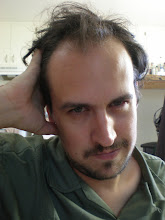I admit it. I have a Twitter account: @devin101. I even tweet (or is it twitter?), albeit infrequently; I have never been twitterpated over the concept of Twitter. I'm a writer, which means I like to express myself expansively, with lots of unnecessary--even superfluous--words. 140 characters? Pshaw. Even Hemingway needed a minimum of several hundred words. (Ironically, I will probably tweet a link to this blog.)
Still, there are entertaining aspects to Twitter. Celebrities post clever, funny, occasionally informative or inspirational messages. If you are obsessed with checking for baseball free-agent or trade rumors every few seconds, Twitter's your game--not that I would know about that first hand. Cough, cough.
There are also many practical reasons for Twitter to exist: local news alerts, or emergency alerts, which let me follow the events of last summer's Montana fire that threatened my family home; a network for independent authors to connect with other authors and publicize their works; a forum for posting political petitions.
But there are several aspects to Twitter that make me uncomfortable: the anonymous users who post abusive, threatening responses to public figures; the dozens of people who post variations on the same clever responses to celebrities, or who simply ask celebrities to follow them or re-tweet them; the fact that I often spend way too long refreshing my Twitter feed and not emailing friends and family. It's a twisted reaction: oh, look, I just read a Twitter post; time to refresh and see if there is something new--there almost always is something new.
We are a weird culture, and Twitter exemplifies this. We react with hostility to political comments we don't agree with, rather than having a conversation--granted, it is tough to express sophisticated views in 140 characters. We treat celebrities as ciphers, not people; "Of all the thousands of people who tweet at you, famous person, I'm the most special, so you should say hi and we can be best friends so that I can display you as a trophy." We want celebrities to acknowledge us, thereby providing validation that we are the center of our own universe, although I don't know if a re-tweet from Wil Wheaton, for example, really proves that. (I freely admit I've occasionally tried to be clever on Twitter in response to something someone famous said, because, well, it would be cool to impress someone famous.) This twitter-stalking is akin to chasing a butterfly with a basketball net.
This morning I seriously considered pulling the plug on my Twitter account after one last threatening response from some brave, anonymous soul to a high-profile sports columnist who posted an opinion about the behavior of a politician. Not exactly a comment that merited a threat, I wouldn't think. If you don't like your celebrities to have opinions that differ from your own, don't follow them.
Maybe life would be better if I stepped away from Twitter, from Facebook, from Internet message boards. There would be far-fewer trolls brought to my attention--trolls are the anonymous creatures who live under the wi-fi equipped bridge that is the Internet who come out to provoke, insult, flame, and just generally act like jerks. Trolls are the Westboro Baptist Church of the digital world.
But, then again, I don't know if the Internet is the cause or a symptom. of our distracted, polarized age. I can't say that we were more civil to each other in the past, because I wasn't around to know; I will say that I think there is currently room for more conversation, a need to get to know people with differing views without automatically hating them. It's probably easier to get to know someone if you aren't trying to judge them by what they can say in 140 characters or less. Which, of course, is exactly what those stupid conservative hicks do. Stupid ignorant losers. It's all their fault, of course.
Probably the real problem with Twitter is that it is a giant time-suck, not that it makes us all crazy. We're Americans; we were crazy before Twitter, and we'll be crazy after Twitter, crazy in good ways and in bad. The trick is to find productive ways to work through the crazy and make the other people understand that we aren't all that crazy after all. What do you think, Internet?

